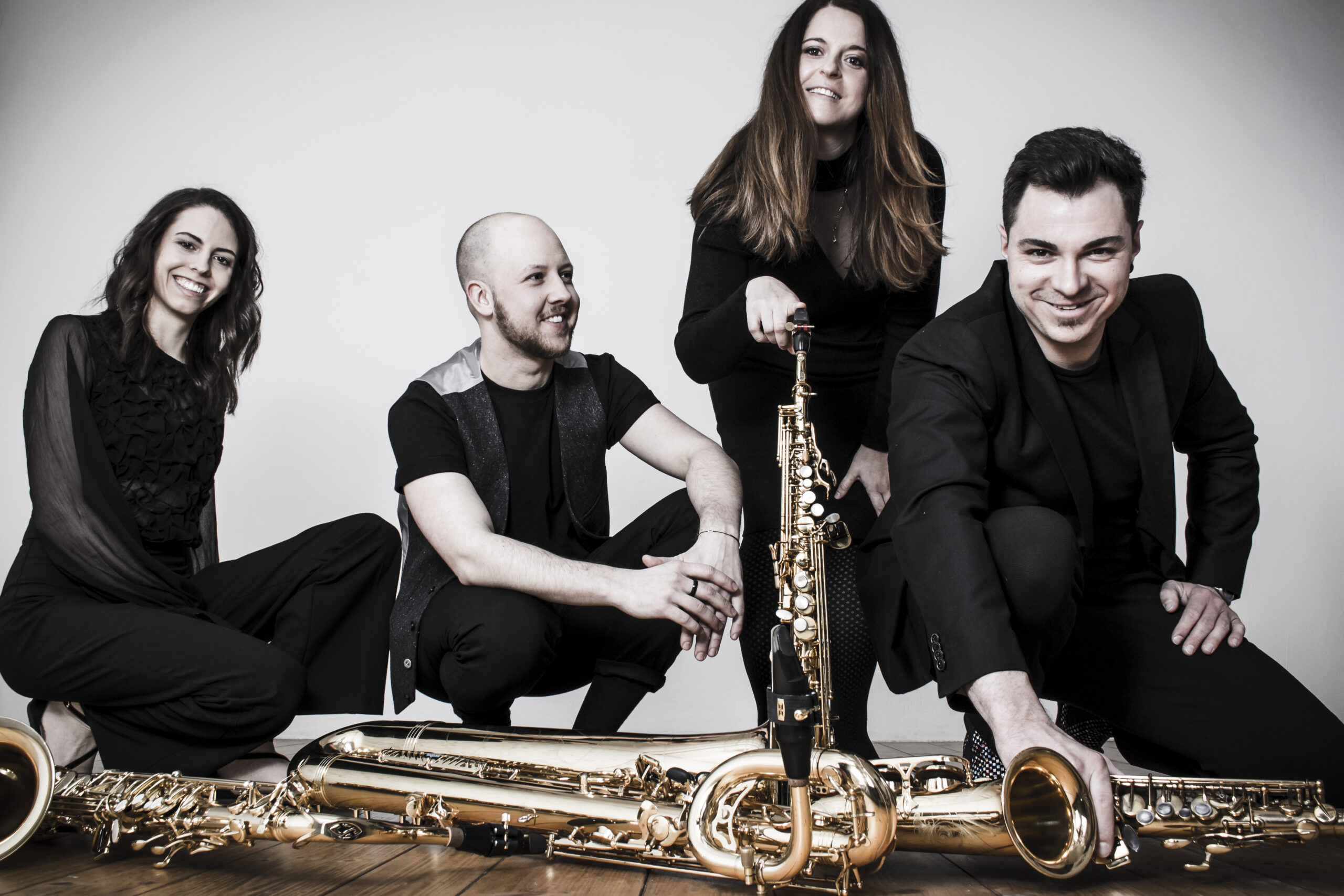Performers
- Aureum Saxophon Quartett
- Martina Stückler saksofon sopranowy
- Johannes Weichinger saksofon altowy
- Viola Jank saksofon tenorowy
- Lukas Seifried saksofon barytonowy
Programme
Edvard Grieg Holberg Suite, Op. 40 (selection; arr. Maarten Jense) [12’]
I. Prelude
II. Sarabande
III. Rigaudon
Ludwig van Beethoven Rondo (mov. III) from Piano Sonata No. 8 in C minor Pathétique, Op. 13 (arr. Leonhard Paul) [6’]
Gerald Resch Grid (selection) [5’]
I. Semplice con fantasia. Senza metro e rubato, non troppo lento
II. Canone quasi Blues. Omaggio à Conlon Nancarrow
Chick Corea Spain (arr. Philip Marillia) [4’]
Christof Dienz Knödelpolka (arr. Johannes Weichinger) [2’]
Meraner Jodler, Steirer and Ischler Schleuniger (traditional tunes, arr. Rudi Pietsch) [5’]
Christian Maurer Surivisation [6’]
Steven Verhelst Song for Japan (arr. Tetsuya Watanabe) [6’]
Philippe Geiss Imaginary Dances [8’]
Concert description
Before sound recording techniques became accurate enough and commercially viable reworking music for smaller ensembles (and, especially, the piano) was a necessity. The most common transcriptions were ones of operas and orchestral compositions. The 20th century first brought the rise of the radio and LPs, later: the commercialization of cassette tapes and CD’s, and nowadays, music is usually just a click away. All that has brought about an irreversible change to the way transcription is applied, but it has not rendered it obsolete. Peter Szendy, philosopher of music, once famously said: “I love them more than all the others, the arrangers”. We value them because they let us in on their way of listening to music and hearing it.
New arrangements give us a chance to rediscover musical pieces. Sometimes, the only thing that is left intact is the very framework. On other occasions, details are highlighted or we get to focus on a layer that was somewhat hidden in the original. Besides, reworks for more unusual ensembles (e.g. saxophone quartet) render repertoire limitations irrelevant. The Aureum Saxophon Quartett take full advantage of that: they will play anything, from Beethoven to Corea, and from Grieg to traditional melodies.
Dominika Micał, “Ruch Muzyczny”




